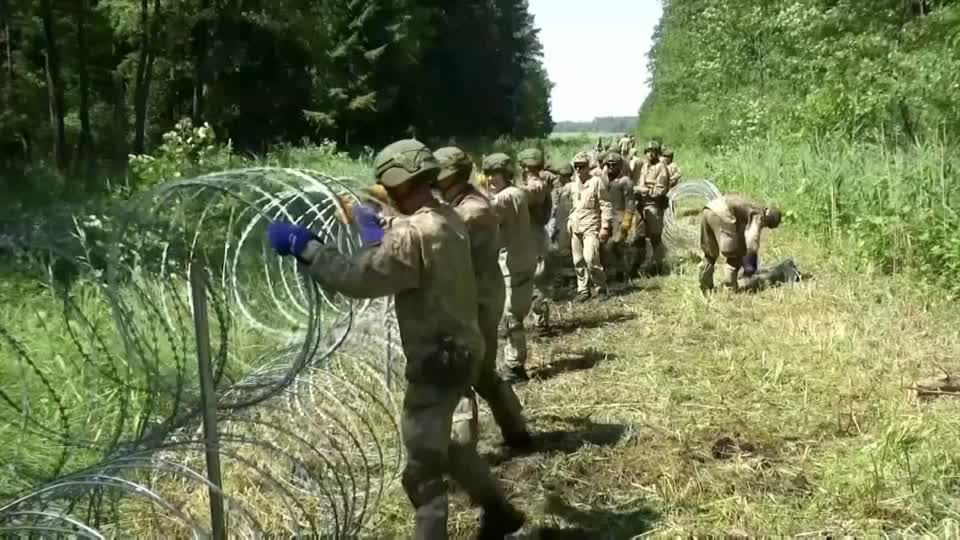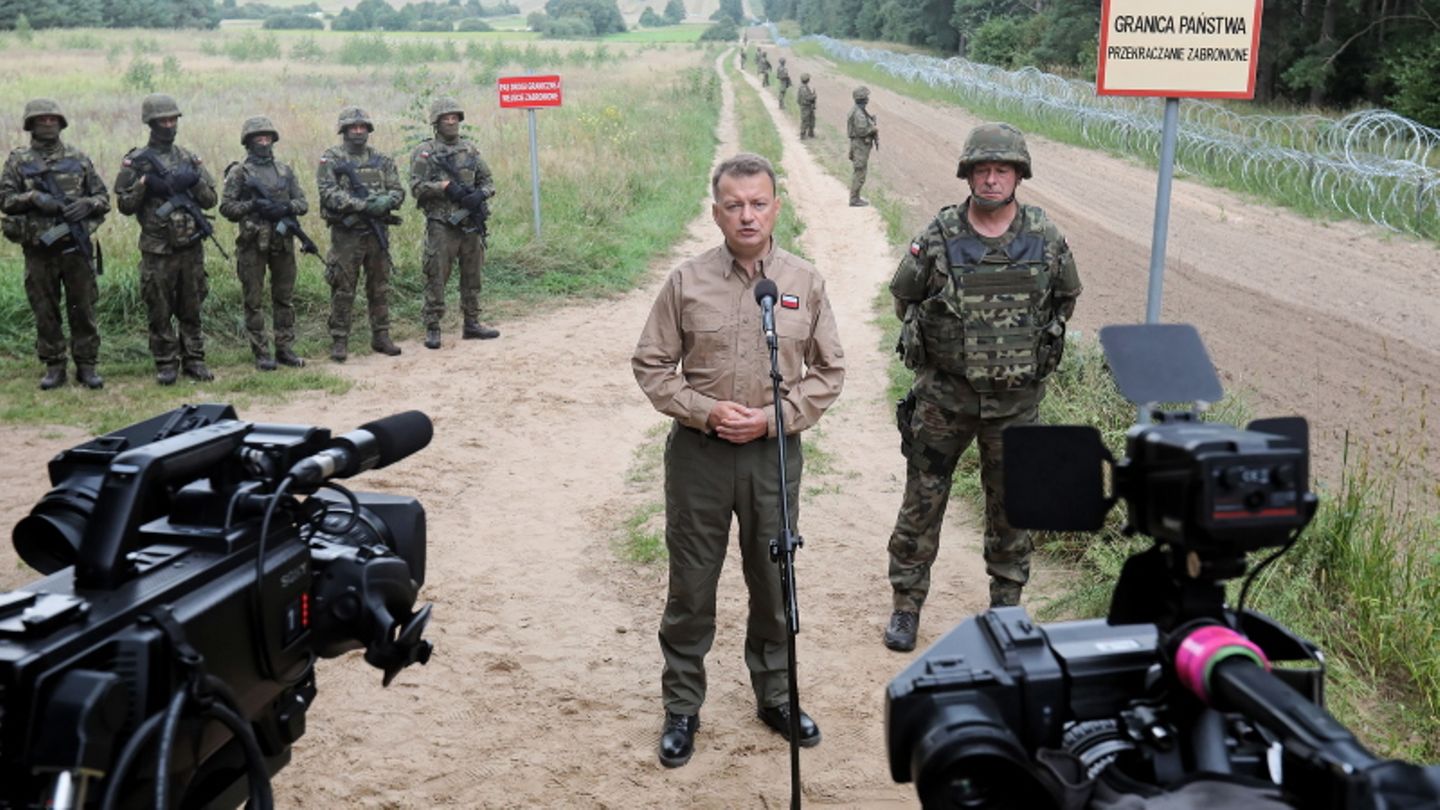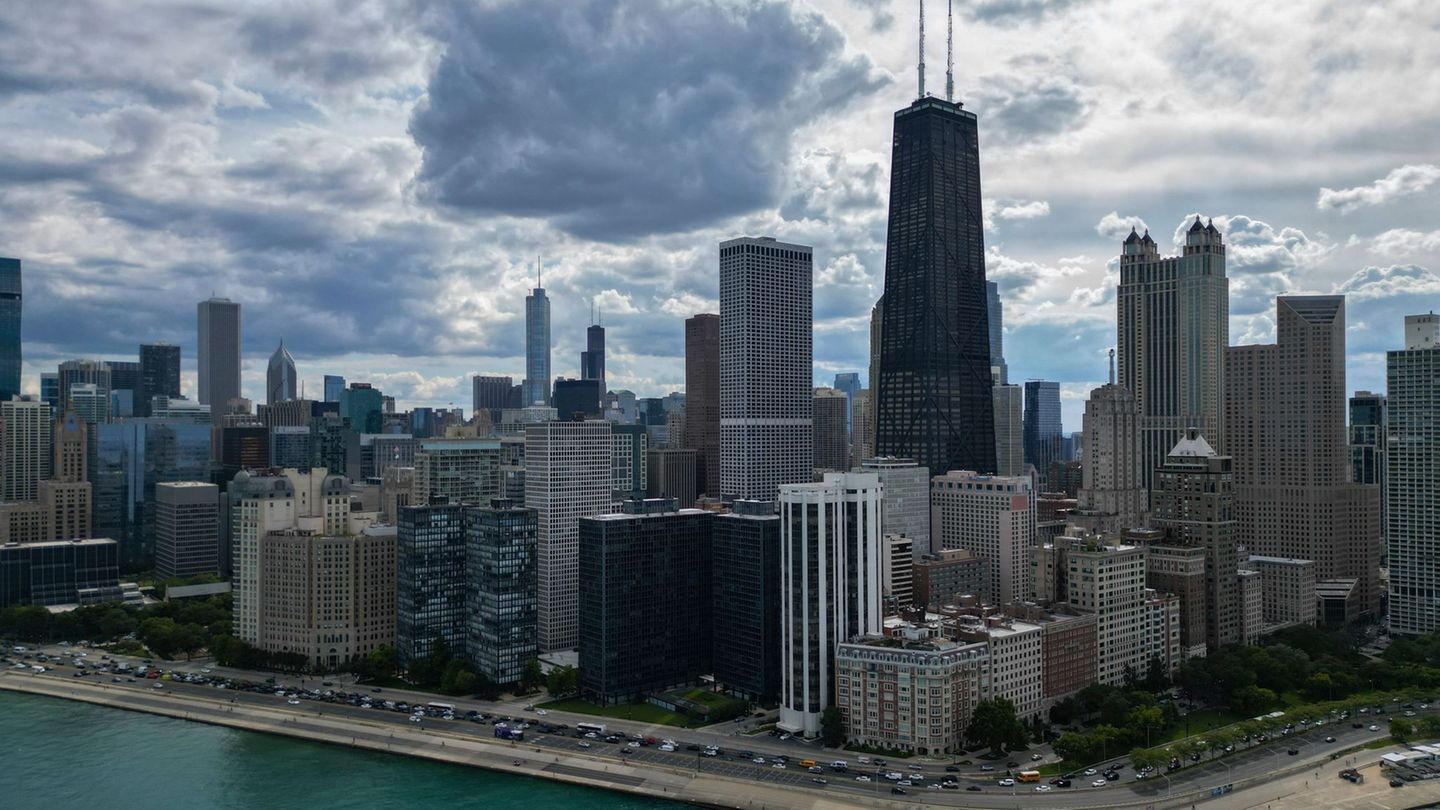In order to prevent the influx of migrants from Belarus, the Polish army wants to start building a fence to the neighboring state this week. The government speaks of an “attack on Poland”.
Poland is pushing ahead with the construction of a border fence with neighboring Belarus. Defense Minister Mariusz Blaszczak announced that engineers in the Polish army had already completed plans and soldiers would now take over the execution. When exactly this should happen, Blaszczak did not say, but he had already announced on Monday that they would start this week. In the coming days, up to 1,000 soldiers are to be relocated to the border with Belarus, which is also the external border of the EU.
The planned fence is Poland’s hasty attempt to protect itself from the whims and incursions of the Belarusian ruler Alexander Lukashenko. In Minsk he declared several times that his border guards would no longer prevent migrants from continuing to travel to the EU – as a reaction to tightened Western sanctions against the ex-Soviet republic, which was isolated from the West.
Lithuania closes down – pressure on Poland is growing
Initially, the small Baltic republic of Lithuania in particular had to contend with an influx of migrants from the Middle East. Since May, more than 4,100 refugees have illegally crossed the green border to Belarus; in the entire previous year, the border guards there picked up 81 migrants. But at the beginning of August the Lithuanians began to turn away the refugees. As a result, the situation at its border has stabilized. In the past 24 hours, fewer than ten migrants had been prevented from crossing the border, the authorities said on Tuesday. Lithuania also wants to build a fence.
Now the pressure on Poland is growing: According to the Polish border guards, more than 2,100 migrants tried to illegally enter Poland via Belarus in August alone. Over the past year, just over a hundred refugees were registered at this border section. Defense Minister Blaszczak said that the Polish army had already secured 130 kilometers of the eastern border with barbed wire in July.

The Baltic countries Lithuania, Latvia, Estonia and Poland blame Lukashenko for the sudden rush. In a joint statement on Monday they condemned its “politically arranged operation”. Poland’s Defense Minister Blaszczak put it in the same direction: “We are dealing with an attack on Poland, you could say that it is a hybrid war. It is an attempt to destabilize the EU and Poland.”
Polish media are full of reports that a tourism agency from Lukashenko’s presidential administration is promoting the supposedly safe passage via Minsk into the EU in crisis regions such as Iraq and Afghanistan.
UN High Commissioner for Refugees appeals to Poland
Commentators in Warsaw agree: Lukashenko is also interested in revenge. After the mass protests against the presidential election on August 9, 2020, which was widely regarded as fake, both Lithuania and Poland accepted many opposition members from Belarus.
Symbolic of the conflict over refugees are the pictures of a group of 24 refugees who have been waiting for almost two weeks near the village of Usnarz Gorny in the no man’s land on the Polish-Belarusian border. The camp of the people, including many from Afghanistan and Iraq, is surrounded by Polish border guards and soldiers. According to media reports, security forces can also be seen on the Belarusian side. The UN refugee agency on Tuesday appealed to the government in Warsaw to let the people on Polish territory and to provide them with medical and legal help.
Belarusian state media gleefully exploit the images of the “humanitarian catastrophe” in their western neighbors. And Lukashenko himself accused the Poles on Monday of instigating a conflict at the border and violating the Belarusian border. The Poles had “captured 50 people who (…) wanted to go to Germany where Mother Merkel had called them,” he scoffed. These were then driven onto Belarusian territory under threat of armed violence.
David William is a talented author who has made a name for himself in the world of writing. He is a professional author who writes on a wide range of topics, from general interest to opinion news. David is currently working as a writer at 24 hours worlds where he brings his unique perspective and in-depth research to his articles, making them both informative and engaging.




